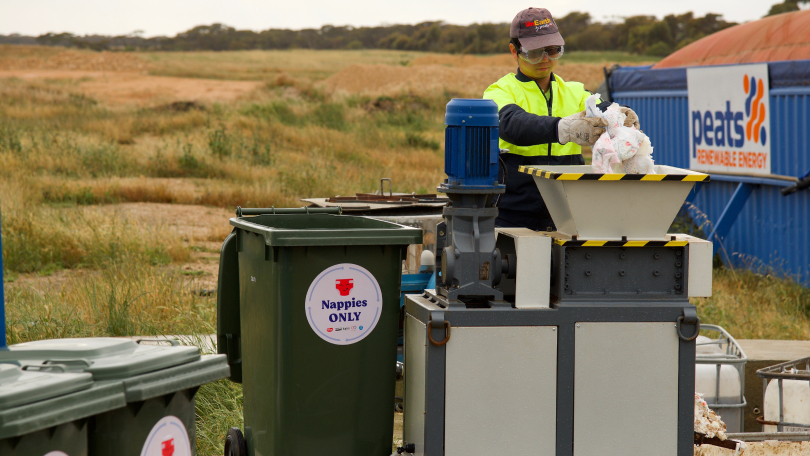
Kimberly-Clark Launches Australian-First Diaper Recycling Trial
2022-12-14 22:00
Kimberly-Clark Launches Australian-First Diaper Recycling Trial
The Nappy Loop trial uses anaerobic digestion to convert organic material from used diapers into nutrient-rich compost and bioenergy

Kimberly-Clark has announced a new nappy recycling trial in what could be Australia's answer to the 1.5 billion disposable nappies that end up in landfill each year. About 95% of around 300,000 babies born in Australia each year use disposable diapers, and the trial represents a step forward for the diaper industry.
The Nappy Loop, which has been running in South Australia since July 2022, is the first trial of its kind in Australia, using anaerobic digestion to convert organic material from used diapers into nutrient-rich compost, and capture and use Bioenergy from production powers the recycling process.
The Nappy Loop team is led by Kimberly-Clark Australia along with Australia's national science agency CSIRO, one of South Australia's largest composting companies, Peats Soils and Garden Supplies, Solo Resource Recovery and early learning and care provider G8 Education. Together, the team collected and recycled nearly two tons of used diapers, demonstrating that anaerobic digestion is a viable option for the recycling process.
Belinda Driscoll, managing director of Kimberly-Clark ANZ, said: "As Huggies is the most popular nappy brand in Australia, we not only set the standards in baby care, our goal is to set the standards for our industry in sustainability too. We believe we have a responsibility to lead by example and find better solutions for the community and our planet."
"Families and day care centers across the country rely on the convenience and performance of disposable nappies and while we work to innovate and create more sustainable products, recycling is one solution for disposable nappy waste. Identifying a recycling solution that works hasn't been easy due to the availability of technology and collection systems. Today is a very proud day for us, announcing that we have trialled right here in Australia, and it represents a big step in Kimberly-Clark ANZ's sustainability strategy," Driscoll adds.
The Nappy Loop trial used a B2B model in which Solo collected used nappies from G8 Education's Welly Road Early Learning Centre in Mount Barker and shipped them to the Peats composting facility for disposal. Using anaerobic digestion, the organic material in used nappies is converted into nutrient-rich compost, while the plastic components are separated and evaluated for future recycled products. In addition, the anaerobic digestion process produces bioenergy, which is captured and used to power the peat composting facility.
"CSIRO is working with Kimberly-Clark Australia to provide scientific validation of The Nappy Loop pilot to help tackle waste. Our research for this Australian trial will help inform the team on the potential scaling of the program to help reduce the amount of nappies ending up in landfill." said Dr Anu Kumar, CSIRO's principal research scientist.
Pete Wadewitz, general manager of South Australia's largest composting plant, said:"Anaerobic digestion is a growing area of focus and possibility in Australia. The process has been used successfully in Toronto, Canada, to recycle disposable nappies and we are excited to be introducing this innovative approach in the Southern Hemisphere as we work to solve the nappy waste issue."
Ali Evans, head of early learning and Education at G8 Education, added:"Through this partnership the nappies changed every day at our Welly Road center are recycled instead of going into landfill. As educators of our future generations, sustainability is a core focus in all our 440 centers across Australia and we're excited to contribute to this partnership and the positive environmental impact it can make."
Five months after recycling used nappies, the Nappy Loop team is now exploring opportunities to expand the scheme in South Australia and across the country.
Get the latest price? We'll respond as soon as possible(within 12 hours)















